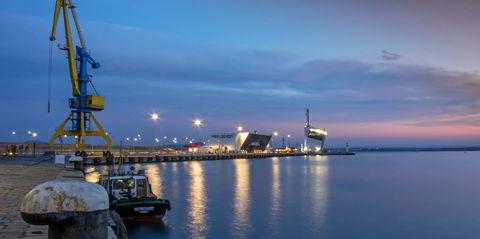Houston technology company FuelTrust has highlighted the problem shipowners face with bunker contamination and fuel discrepancies.
Its most recent research, using artificial intelligence-based technology, analysed fraudulent practices and inadequate supply chain management in the sector.
The study found that in 2021 and 2022, more than 39% of global bunkers exhibited a variance of 2% or more compared with the amounts stated in their delivery paperwork.
The primary issue was the introduction of water into the fuels during the journey from onshore storage tanks to the ship’s bunker tank.
This problem typically involved an increase from 0.1% to more than 0.25% water content. Although that is below the regulated threshold, it still resulted in average losses of $14,910 per delivery.
“The maritime fuel market has a long history of not being transparent,” FuelTrust said.
“Bunker fuels account for more than 50% of a vessel’s operational expenses, meaning fraudulent practices and inadequate supply chain management can significantly affect the profitability of vessel owners and charterers and fuel suppliers.”
Earlier this month, 11 ships lost propulsion and more than 100 were affected in a single incident of fuel contamination in Houston.
The problem originated with one bunker supplier, according to VPS, a testing and advisory company.
Even fuel considered “on-spec”, ie meeting quality standards, experiences volume or content issues, leading to financial losses or engine problems, FuelTrust said.
Costly problem
In the past year, more than 600 vessels have been disabled through fuel problems, despite the bunkers being on-spec, resulting in estimated global supply chain losses exceeding $5bn, it added.
Fuel suppliers and shipowners incurred financial losses, which are difficult to detect and make claims against, FuelTrust said.
Chief executive and co-founder Jonathan Arneault said: “This new research across the global bunkering market emphasises the need for better transparency.
“As the latest contamination case demonstrates, it’s essential that shipowners, bunker suppliers and charterers can gain better insight into their fuel supply chains. Better information on the fuel we use is also a foundational block of any serious greenhouse gas reduction strategy.”





